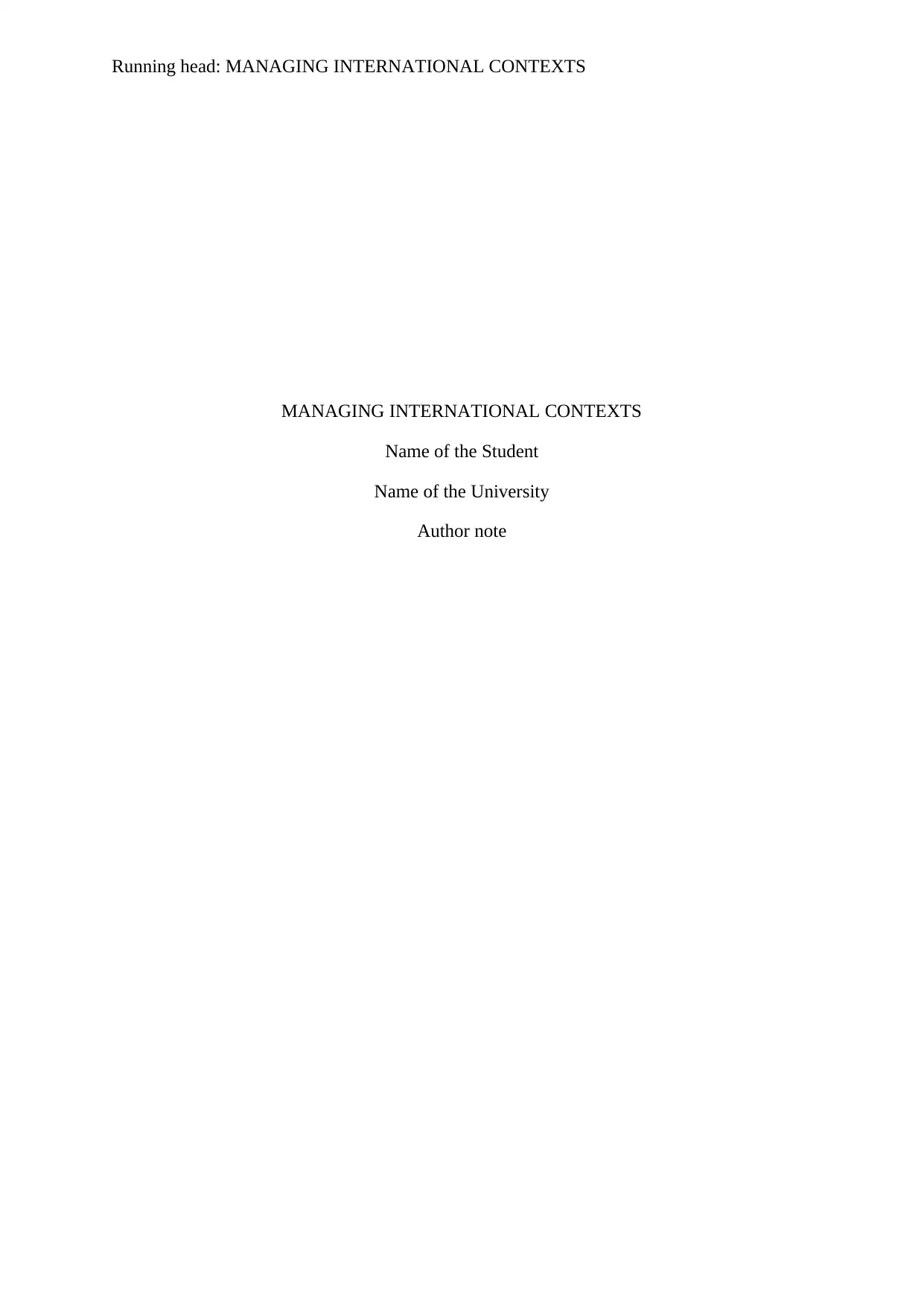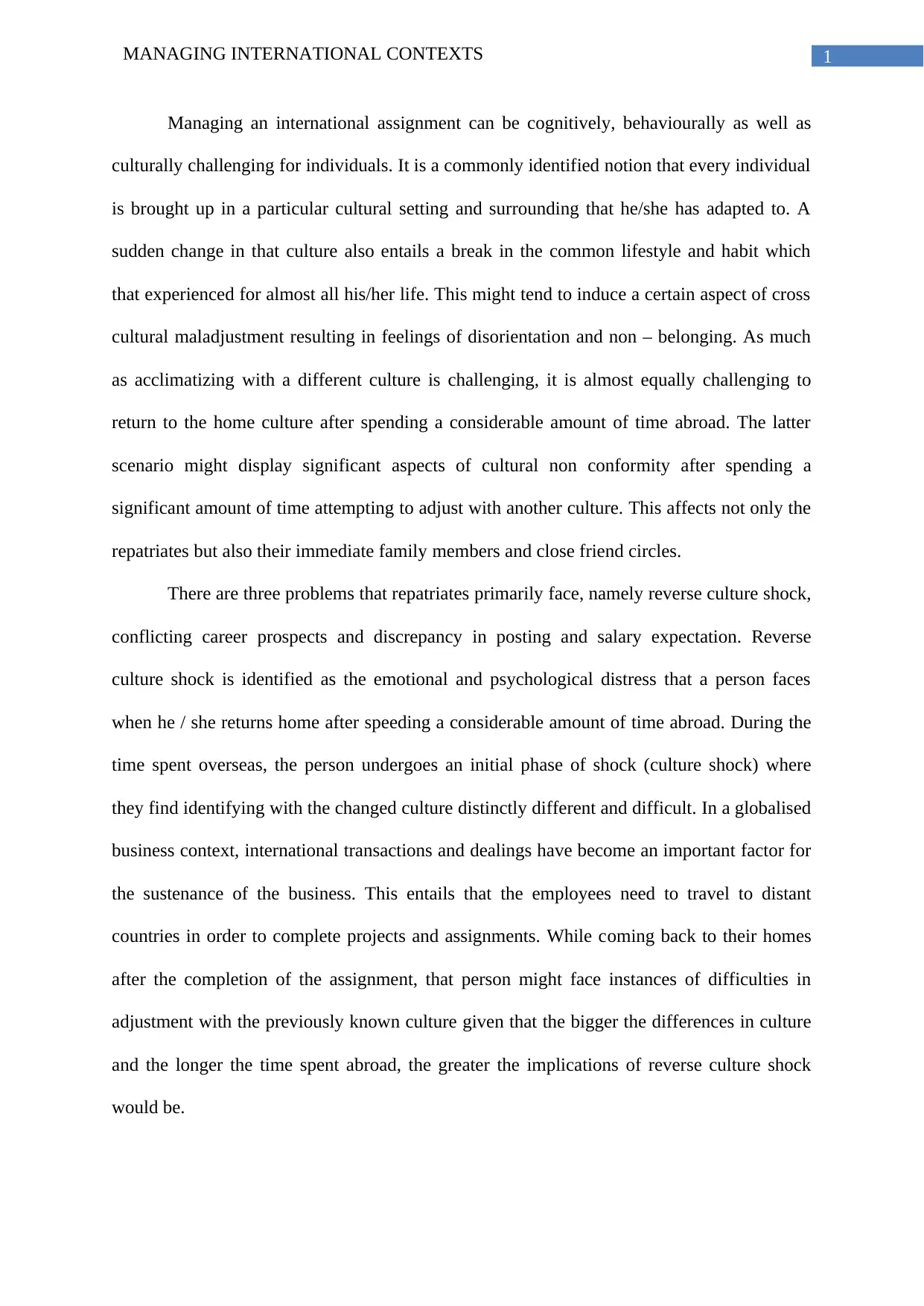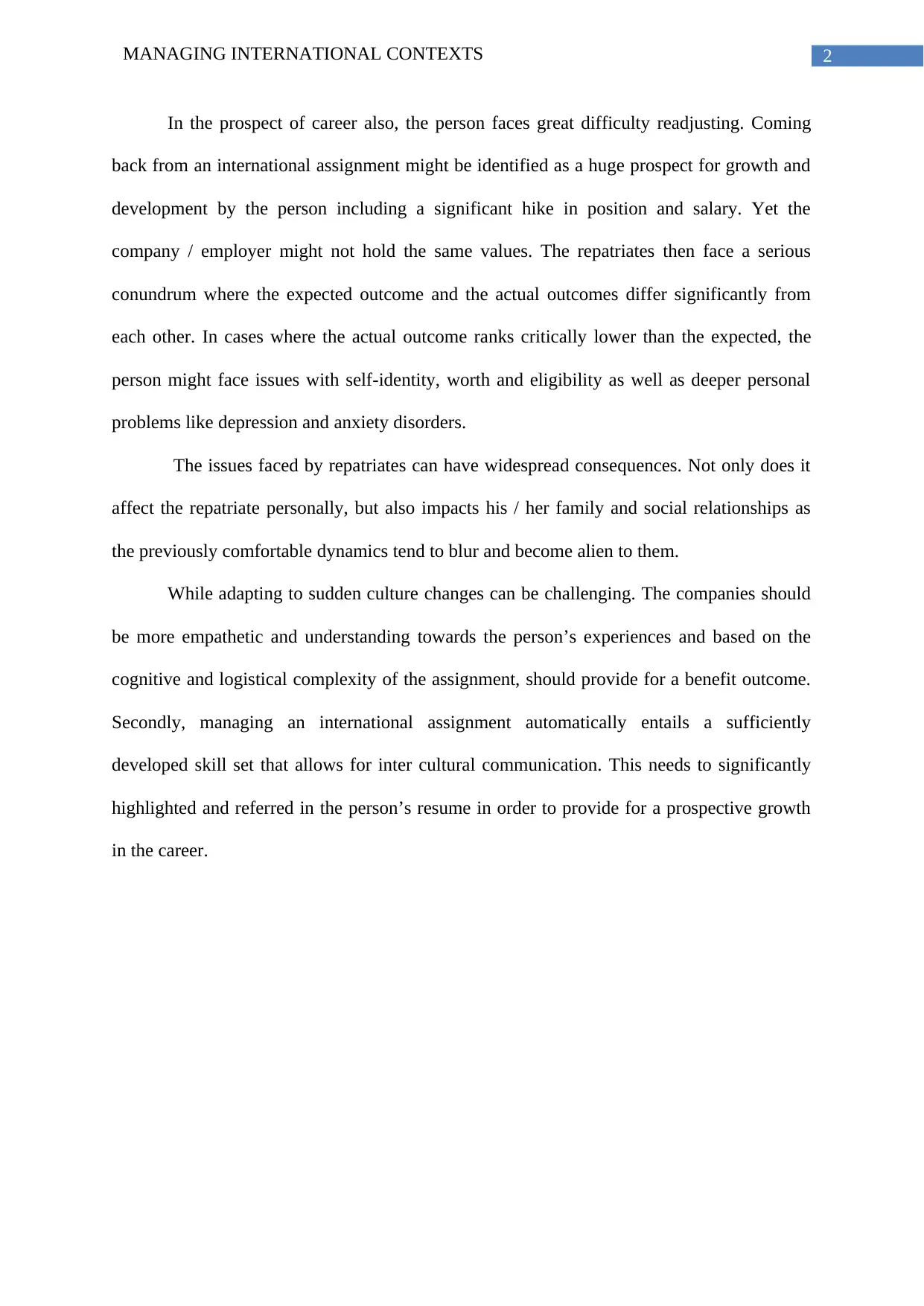Report on the Challenges of International Assignments Management
VerifiedAdded on 2022/12/29
|3
|613
|72
Report
AI Summary
This report examines the multifaceted challenges associated with managing international assignments. It begins by highlighting the cognitive, behavioral, and cultural difficulties faced by individuals when adapting to new environments and cultures, including the phenomenon of reverse culture shock upon repatriation. The report emphasizes the importance of understanding the emotional and psychological distress associated with returning home after a significant period abroad. It also explores the impact of international assignments on career prospects, particularly the potential discrepancies between expected and actual outcomes regarding position and salary. The report further analyzes the broader consequences of these challenges, impacting not only the repatriate but also their families and social relationships. It concludes by suggesting strategies for companies to support employees and emphasizes the importance of intercultural communication skills in managing international assignments.
1 out of 3









![[object Object]](/_next/static/media/star-bottom.7253800d.svg)